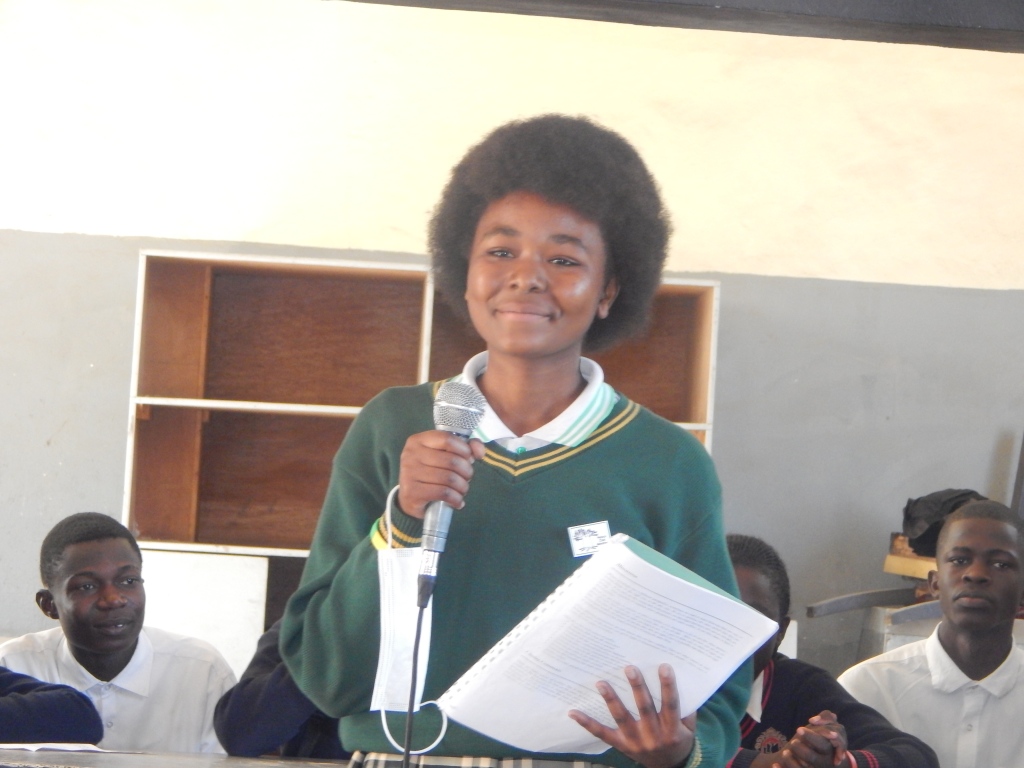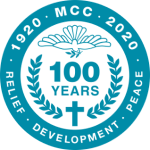By: Laura Carr-Pries
What is the purpose of peace clubs? How does peace club impact people?
In a school-based peace club, students meet with a matron or patron (teacher) once a week and explore a topic from the peace club curriculum. These sessions often include discussions, role plays, games, songs, and stories that help learners to gain skills and knowledge in conflict resolution. But what happens after students gain skills and knowledge?
Over the past 9 months that I have been working with Peace Club Lusaka, I have had the privilege of hearing stories from students, teachers and the Peace Club staff about the ways that peace clubs have impacted their lives and the lives of others.

Peace Club members have described how they have experienced personal transformations; that they have become “more peaceful.” A student from Kamwala Primary School shared how she used to be a bully, but after joining peace club and learning how bullying can hurt people, she became a changed person. She made friends, stopped fighting with her siblings at home, and became an ambassador for peace. This student now advocates for peace in her school and community. She invites her fellow students to take what they’re learning in peace clubs seriously because it will help them build a more peaceful country.
For other students, participating in peace clubs have given them ways to respond to violence that they may be experiencing. Peace club lessons help students to identify violence and recognize abuse – whether emotional, physical and sexual. And after building awareness, peace clubs sessions help students to come up with strategies to respond to conflict and violence. By both building awareness of and strategies to respond to violence, learners can take action to interrupt the violence that they experience or to seek support from trusted adults.
While peace clubs are primarily focused on students, teachers report that they have also been impacted by their work with peace clubs. Teacher trainings not only focus on the modules and how to lead the lessons but also apply the key concepts of peace clubs to the teachers’ lives. After these sessions, teachers have shared that they thought that they were going to learn information that would apply to their learners, but they were surprised how it was relevant to their own lives. Lessons about communication, culture, and perspective in the student curriculum raise relevant questions for and address challenges that teachers face, which has impacted the way they relate with their students and their families. One teacher shared that her work with peace clubs has made her more patient, which her family has noticed. As teachers are impacted by the work of peace clubs, they become advocates for peace in their schools and strong leaders and role models for the peace club members.
Peace Club Zambia believes that if students, teachers, and parents gain the skills and knowledge for peace and conflict transformation, the impacts of peace clubs will spread into the surrounding community. Everyone, even students, have people in their life that they can influence and impact – whether that is friends, family, co-workers, or fellow students. Members are encouraged to share their learnings and apply their skills to be positive examples at their schools and in the community.
By empowering students and teachers with the knowledge and skills for peacebuilding and conflict resolution, Peace Club Lusaka is investing in building a more peaceful future.
If you want to learn more about the impact of Peace Club Zambia, you can find stories on the Peace Club website.


Leave a comment